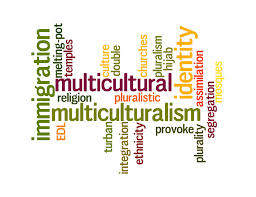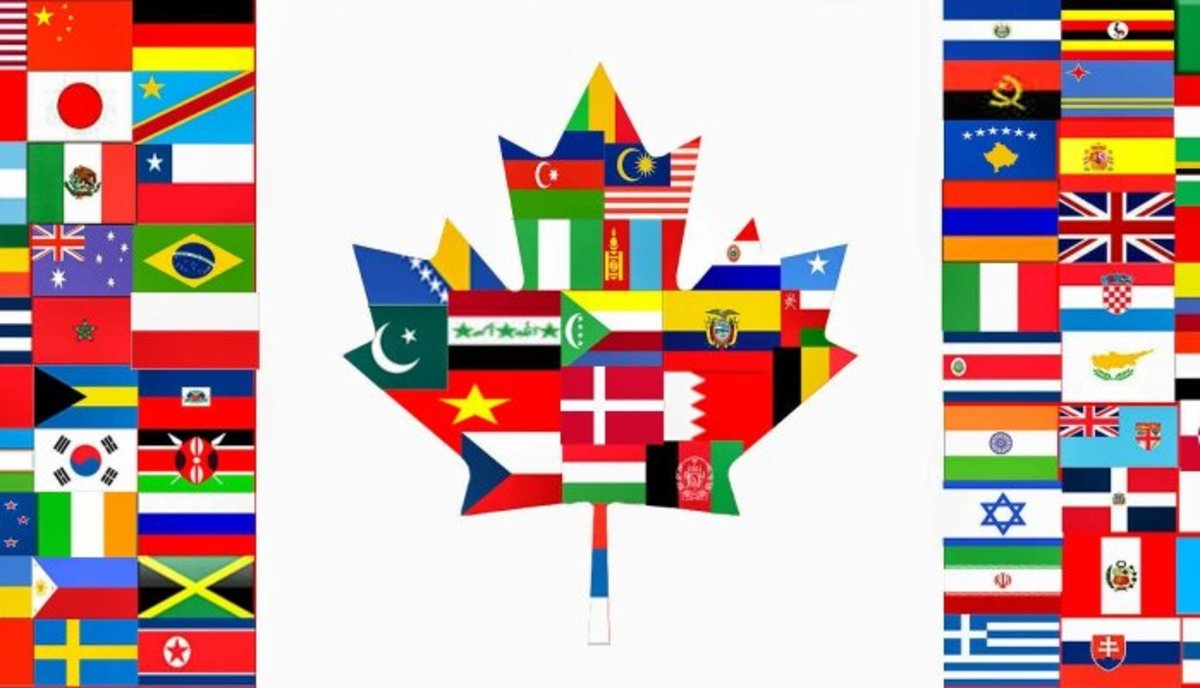Multiculturalism: a debate, Western and a Muslim perspective Part-1
Statement of Cameron on the failure of Multiculturalism
The issue rages more than ever across both ends, especially in Europe. Many of the Europeans feel they have been let down by “Multiculturalism”. In contrast they were optimistic of its potential benefits to their society. But their perspectives have changed and one wonders as to what caused such a change which is proving a divisive force into European society.
Almost thirty years ago, Europeans saw Multiculturalism as the panacea to its social problems and they envisioned of an inclusive and an all-embracing society. The debate as a result of failure of Multiculturalism is mostly between Muslims and Westerners and not between Westerners and other minorities. Westerners believe that minorities other than Muslim have integrated well into their societies, but Muslims somehow resist integrating in their ways so there is possibility of something inherent into Muslim religion and culture which is against Western values of freedom and democracy.
Just recently David Cameron and Angela Markel publicly denounced the failure of Multiculturalism and spoke against its dangers. Statements from leaders of two important European countries came as a shock to most of political pundits and they smell of an era of political incorrectness which inspires an already melting pot of far right political activities within European countries. Far right groups and parties speak vocally against ill-effects of multiculturalism; in fact such groups have gone on to incite bigotry and violence against minority groups, Muslims in particular. Such groups have emerged in almost every European nation; of which some of the notables are:
Front National (National Front) founded by Marine Le Pen in France.
British National Party founded by Nick Griffin in U.K.
Freedom Party founded by Geert Wilders in Holland.
National Democratic party of Germany founded by Uto Voigt, etc.
Quite understandably, journey has not been easy for Muslim minorities and the European majorities as violence breaks out intermittently in one country or in other, an unfortunate incident of Anders Behring Breivk’s homicidal rampage on the Norwegian island of Utoya in July 2011 was one of many incidents. There is increasingly more fear of such attacks.
This article is going to be composed in three parts: First two parts would shed the light on the status of Jews and Christians in Muslim ruled lands of the past during times when Muslims ruled parts of Europe, i.e., Spain and Balkans, and the third would on the Muslim minorities living in Western countries, as to how they are dealt with by their current respective governments.
Statement of Angela Market on the failure of Multiculturalism

Non-Muslim minorities under Muslim rule
During times when Muslims ruled over the parts of Europe - minority Christian sects flew from their native lands to take shelter against orthodoxy of mainstream Christians' sects, and the Jews took shelters to escape persecution from European Christians. But it must be said here that, there is a world of difference between what Muslims do and what Islam instructs them to do; as most of times historically, Muslims have acted in contravention with the teachings of Islam. While non-Muslims, inadvertently deem Islam responsible for the behaviors of Muslims and blame it for wrongs done by Muslims.
Minorities are defined on different basis and on different criterion, but in Islam minorities are defined through a religious belief. According to Islam, those, who do not profess Islam, are a minority. Islamic scholars have defined minorities in two broad categories: mujahidin are those who enter in to contract with Muslim State and ahl al-dhimma are considered a protected minority. It is the latter that is subject of the discussion here, more for the reason that such minorities existed in lands conquered and eventually ruled by Muslims.
Muslims do believe to this day that Islamic system was pluralistic in practice and in its outlook since the days of its inception. Due its universality, it entailed to embrace the whole humanity under the one umbrella. So it would not just be the Muslims which were to be ruled under it. Not surprisingly thus, Muslims do believe that they successfully accommodated different and conflicting views and were successful in addressing the cultural, political and religious sensitivities of the minorities - Jews and Christians specifically.
But foremost, what is minority? Linguistically speaking, any group of a people that is different from the majority of people living in any area is a minority.
It is only in the limited scope of International Law that we find the contextually meaningful definition of minority which is relevant to discussion of its rights and privileges. In this context from a Muslim stand point, if I may put justifiably say, minority may be defined as a respective group variant from the dominant group within state in matters vital to the formation and constitution of the state.
Furthermore, minority is a permanent minority and a majority is the permanent majority – Coptic Christians over the years have been permanent religious minority groups, while similarly Muslims living in Western countries may also be forming a permanent minority groups there. Rights and privileges of the minority groups have become a topic of fascinating discussion under International law. But as per our current discussion as to how did Islamic law of the past addressed the issues of rights and privileges of the religious minority groups; which were Christians and Jews.
Million dollor Question
Should multiculturalism be promoted or opposed by Western societies?
One important question that has emerged out of the above working definition of minorities is, “What is essential to the constitution and formation of societies or for the formation of state.
It is basically religiously held belief, in Muslim societies/states, of a group that decided whether he belonged to the majority or minority. And in West, it is cultural background coupled with the other factors that differentiated at most who is majority and who is minority. Now it is a different issue altogether that is: Would Europe continue to define itself culturally and ethnically which it has done for last five hundred years, or the current religious and cultural under currents may redefine and re-constitute Europe once and for all, remains to be seen. But there are pressures to European society for certain.
From Muslims' stand point this differentiation still holds true even today let alone in middle ages. For society and state mainly draw its validity from Islamic injunctions so anything that is in conflict with the teachings of Islam is deemed as repugnant to Muslim psyche, which certainly was the case in past, to a large extent this still holds true.
But our point of discussion here, why are minorities – Christian and Jews – are treated as Dhimmis, Why are not they treated as equal citizens of the Muslim State/Islamic Sate?
Before, addressing the Muslim point of view on this, we need to explore how the ‘pluralism’ has been understood, formulated and practiced in the history of Islam. So it is incumbent for all of us to understand Islamic and Western approach to the issue of ‘pluralism’.
Outsiders find it difficult to differentiate Islam as a set of moral principles and as a religion - Islam as a social code, Islam as a legal system, Islam as a cultural model and Islam as an all encompassing civilization. Islamic pluralism has been developed by jurists based on their thorough studies of Qur'an and Sunnah.
Quran does not discriminate humanity on the grounds of race, nationality and color; rather it does so between the ones who are believers and ones who are not. This summarizes Quran’s emphasis on the unity of humanity but at the same time acknowledges that differentiation can be made between humans based on their free and conscious decision making.
The Quran invites both Christians and Jews for a dialogue, in one place it insists to agree on common terms between them and Muslims. Surprise as it may come to many the term “minority” was not used by Muslim jurists until twentieth century, because as per Islamic school of thought, number is a matter of less importance, it is the human quality that is of paramount importance. Every person’s dignity should be protected and he should be respected as a human being irrespective of what group of minority he represents. Being one from the large group does not abound to his quality nor does it lessen it when he is from small group.
Minority groups of the past residing In Muslim World, was detached with the state apparatus for reason which would be explicitly stated here. As it’s told in previous paragraphs that Islam is complete civilization - conglomerates of code of ethics, of laws both temporal and spiritual guiding both state and society. Hence, Jews and Christians or any other minority group for that matter is deemed as a part of periphery, outside the core of Islamic society. At the core only Muslims are supposed to be part of it as they completely adhere to it.
That is why non-Muslims were given their own space, so that their rights and privileges are guaranteed, upon an occasion Prophet granted them a privilege of a special note, which later becomes the norm for the times to come. Non-Muslims were assured that no Muslim would supervise them as leader if they felt that their own leaders should be appointed as the representatives to administer their matters. Its right to say that they are “guaranteed citizens”, i.e., whose protection and defense is guaranteed by the Muslims, the citizenry as well as the Muslim state. Such a guarantee is to be issued on behalf of Allah and His Messenger (P.B.U.H).
There are unanimous principles between the Muslim jurists that privileges or rights once granted to non-Muslims can never be revoked under any conditions, whatever those may be. A state can modify its law regarding that, it can even change it based on Ijtihad or the Qiyas (exercise of independent judgment). However, once the privilege or the right advanced to non-Muslim, it would continue to withstand against the changing tides of the times. Moreover, there is history replete with such examples where privilege once conceded to non-Muslim was always preserved and continued to be protected by the Muslim rulers for more than six centuries.
One of recent authority on Muslim International law has compared the Muslim citizens and non-Muslim citizens of the Muslim state, and he has gone out to claim that in some respects non-Muslims are better off than their Muslim counterparts. Zapata is compulsorily paid by the Muslims, under no condition what so ever can this be waived, but non-Muslims are exempt of this duty. Likewise, a Muslim cannot escape of a compulsory duty to join military camp in an Islamic state, but non-Muslims are thoroughly exempt from such a duty, though they are welcomed to join it voluntarily. Some of the Islamic Jurists have concluded that Jews and Christians had to pay Jizya over reason for their security by the state, to them nothing is given free of charge, thus the state has to be compensated in turn.
The matter relating to personal law for non-Muslim are always been respected by the Muslims and the Islamic state. The right to recognize such matters is always exercised by the non-Muslims over the centuries within Islamic states, even in face of obvious negation and repugnance of such matters by the Islamic law – while such practice may even be abhorrent to most of the human societies, e.g., consider the practice of Satti. Which was religious practice of most of Hindu sects, done even after the coming of Muslim rule in India, according to this, if a husband dies leaving a widow behind, the better option for her was to burn herself alive or live unmarried ever. Muslim scholars, Jurists did try to dissuade Hindus from such abdominal practices, but Muslim governments of the past, historically were never witnessed to intervene and stop it by law or force.
Similarly, when the Sassanian Empire was superseded by Muslim Caliphate, the local Iranians continued to practice age old incestuous relationships, permitting marriage between close blood relations. Such a marriage is prohibited and is considered harmful morally and religiously by the most of the human societies, but Islamic governments of the past did not try to stop this, which shows the extent to which Muslim states of past were ready to abide by their practice of non interference in minorities’ affairs. While such a practice still continued to this day by the various fire-worshipers in Iran and their various Diaspora residing in parts of India and Pakistan.
The status of non-Muslims in a Muslim state and society is summed up by a Muslim jurist in the following words: “Non-Muslims are like Muslims as far as the civil matters and the dealings of this world are concerned.” Thus, whatever is permitted to any Muslim with respect to his property and wealth is also permitted to non-Muslim; whatever is not permitted to a Muslim is not permitted to a non-Muslim either.
This is where this debate boils down, according to many of the present day Muslims – Muslims living in Western countries are never given as much space as the Jews and Christians of the past were so used to have in matters and issues related to personal law. It is painful to Muslims that personal law of Islam is being denied to them in much of the “Civilized World”, which is democratically liberal and free. Worse, some of the constitutional provisions in some of the Western countries disallow Muslims to organize their personal matters, marriages, divorces and other familial matters in accordance with the teachings of Quran and Sunnah.










